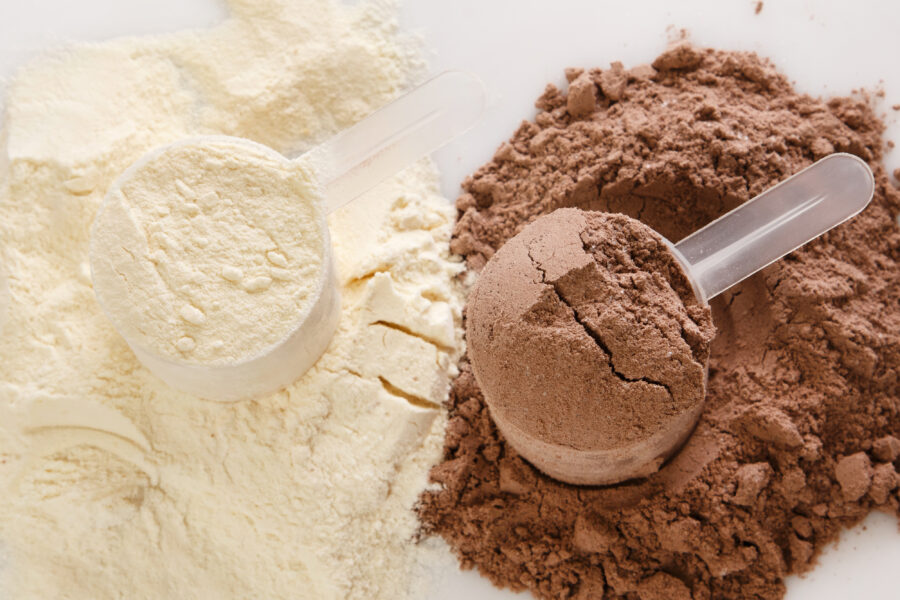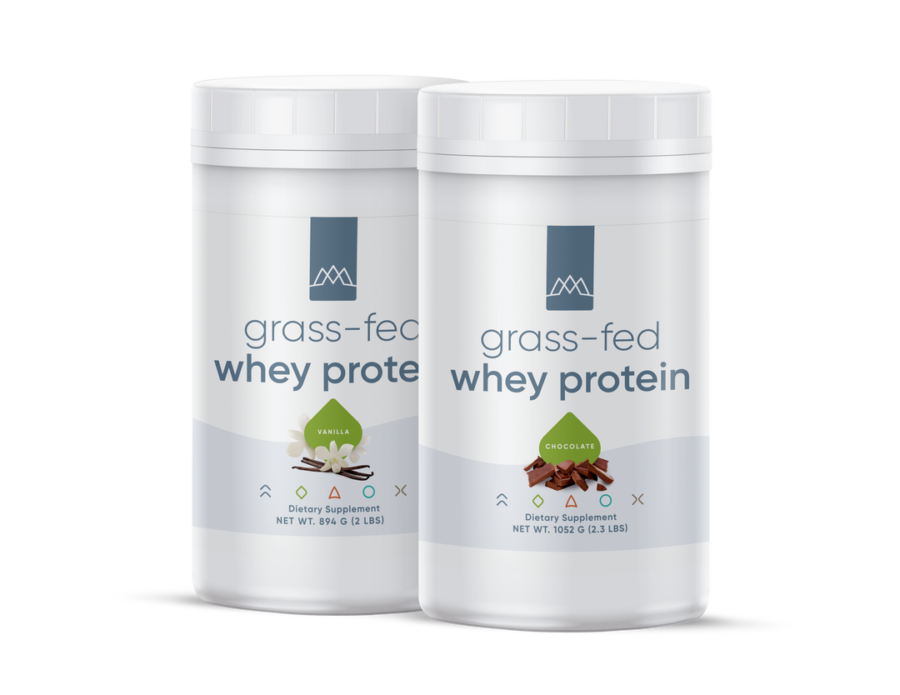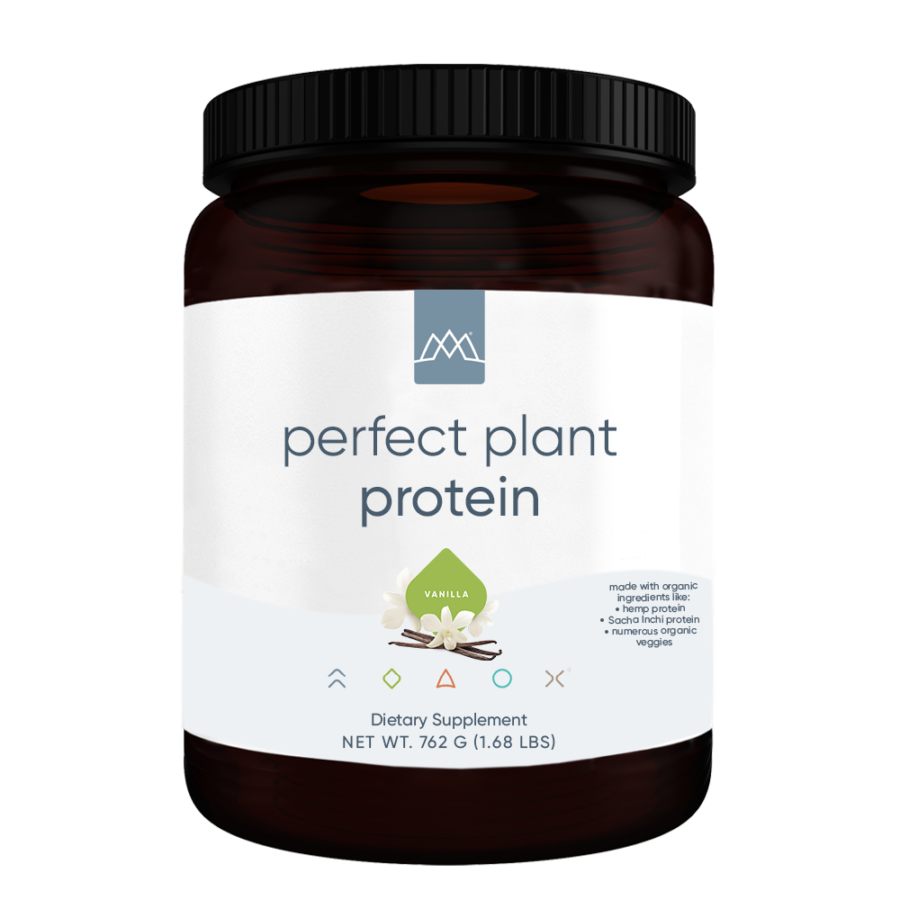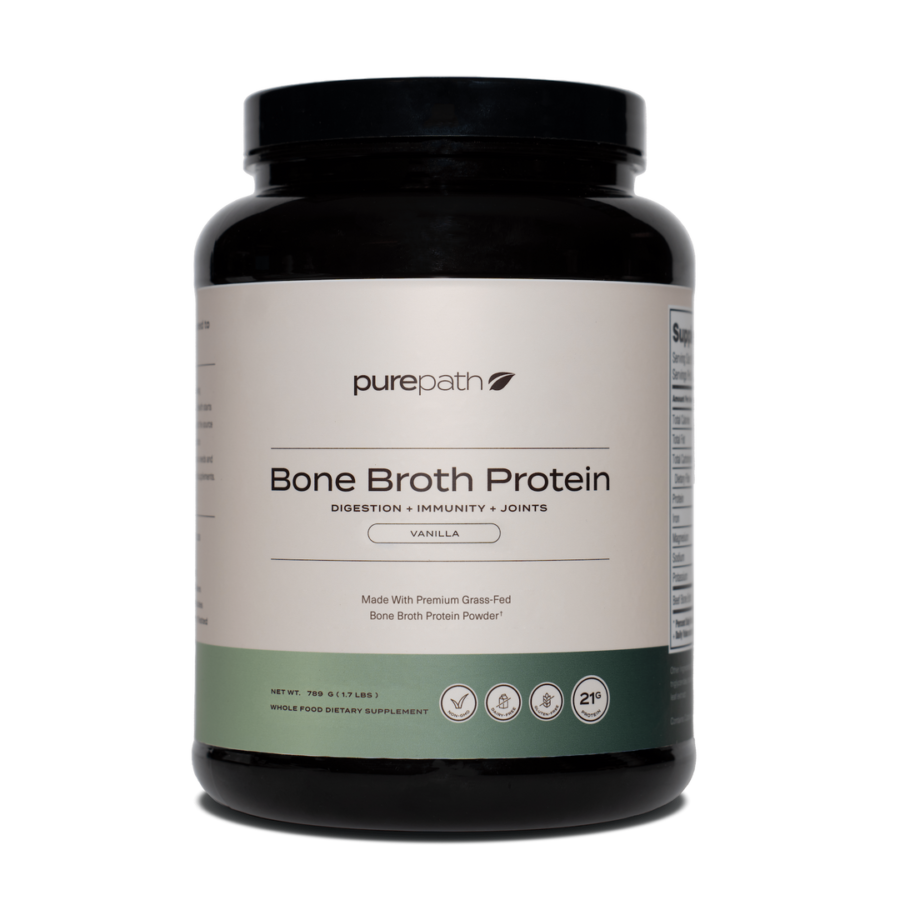The Inside Scoop on Protein Powders
As a health advocate, you’ve likely noticed the sheer number of products and popularity of powdered protein supplements. This sensation has been building for years, due to an ever-growing body of knowledge that has shown us just how important protein is for optimal health. For example, while most people eat enough protein to prevent deficiency, many of us would enjoy better health with a much higher protein intake. More specifically, nutritional experts and real-world testimonials have repeatedly shown us that a high-protein diet has major benefits for weight loss. It allows you to lose more fat, keep more lean muscle, and control your appetite, plus improve several aspects of metabolic health. And that’s just a few benefits that tell us…

Protein Is Good for Everybody
Once, thought to be beneficial only to sports and fitness enthusiasts, powdered protein supplements are now being used by people from all walks of life. That’s because protein is an essential nutrient composed of building blocks known as amino acids. However, unlike carbs and fats, our bodies do not store proteins. Instead, we rely on a constant daily supply through diet or supplements. These proteins provide the essential amino acids that make more than just muscle. They make bones, joints, tendons, ligaments, hair, antibodies, hormones, enzymes, and more. They truly are the…
Building Blocks of Life
The reality is that protein is the only way your body can get the amino acids it needs to sustain life. And while we can get protein from foods, like chicken, beef, fish, and plants. It is common for these food sources to come with excess calories, fats, and cholesterol, plus hormones and preservatives from factory-farming practices. These facts have made protein powders an invaluable tool for any health-conscious person. Someone who wants to be sure they meet their protein needs while making it convenient, and easy to accommodate personal dietary preferences.
In this article, we’ll discuss how a high-quality protein powder can enhance the quality and convenience of any successful health, wellness, and performance-based nutrition plan.
Whey Protein
 Whey protein is one of the principal proteins found in milk, the other being casein. This protein is highly bioavailable and rapidly absorbed and delivers an almost ideal ratio of essential and non-essential amino acids. It contains bioactive protein fractions, a sciencey-sounding term that describes special protein fractions naturally found in milk. These protein fractions can assist the body in producing compounds. They support immune function and reduce stress-induced cellular aging.
Whey protein is one of the principal proteins found in milk, the other being casein. This protein is highly bioavailable and rapidly absorbed and delivers an almost ideal ratio of essential and non-essential amino acids. It contains bioactive protein fractions, a sciencey-sounding term that describes special protein fractions naturally found in milk. These protein fractions can assist the body in producing compounds. They support immune function and reduce stress-induced cellular aging.
It also contains over 20 percent Branch Chain Amino Acids (BCAAs), plus the richest food source of the amino acid leucine. They are critical for initiating the muscle and protein-building process. This makes it a favorite for those who pursue maximum health to those who want a fast-acting protein powder to speed recovery from exercise.
What to Look For
This impressive list of benefits has caused whey protein to be touted as the perfect protein source. However, to get maximum benefits it is best to choose brands that use grass-fed, minimally processed, undenatured whey concentrates. This ensures you are getting protein from cows that are not factory-farmed. Cows that are raised on diets high in grain, pesticide-loaded corn, and animal byproducts. Factory farming also means the cows are milked year-round and are freely given antibiotics and hormones to maximize milk production. Cows raised in these circumstances have a higher incidence of metabolic disorders. Studies show their digestive fluids contain more toxic, inflammatory compounds and several amino acid irregularities.
The Best Whey
As noted, choose grass-fed, minimally processed, undenatured whey concentrates like those found in MaxLiving Grass Fed Whey which is delicately processed to retain vital enzymes, vitamins, minerals, and other immune factors remain. Grass-fed whey is made from milk that comes from cows that graze on pesticide-free pastures, without the use of hormones or antibiotics.
Plant Proteins
It wasn’t long ago that those who wanted to avoid animal products for health or ethical reasons struggled to get enough protein in their diet. That’s because, unlike animal proteins which contain all  eight essential amino acids (EAAs, which are the amino acids that cannot be made in the body), plant proteins often have 1, 2, or more EAAs that are deemed “limiting”. We call this type of protein, incomplete because one or more of the EAAs is limiting the amount of protein synthesis that can be produced in the body. To combat this, strict vegetarians would combine different plants to get all the EAAs.
eight essential amino acids (EAAs, which are the amino acids that cannot be made in the body), plant proteins often have 1, 2, or more EAAs that are deemed “limiting”. We call this type of protein, incomplete because one or more of the EAAs is limiting the amount of protein synthesis that can be produced in the body. To combat this, strict vegetarians would combine different plants to get all the EAAs.
What to Look For
Through a better understanding of plant proteins and the role of EAAs in the diet, it is best to avoid plant protein powders that rely on one plant source of protein like pea or soy. These products are often developed due to low cost but do not solve the limiting amino acid problem noted above. Instead, they deliver an inferior product that has limiting EAAs, which can turn a nutrition plan with good intentions, into a disaster.
If you are vegan or simply want to get more plant protein into your diet, choose plant protein powders that combine several sources of plants, such as Maxliving Perfect Plant Protein. This exceptional plant protein combines pea, hemp, and sacha inchi (a protein-rich nut from the mountains of South America) supplying a perfect ratio of EAAs, that makes a remarkably delicious 100% plant-based protein. This product is ideal for vegans, vegetarians, and flexitarians (those that eat vegan sometimes). It contains an organic blend of kale, beet, green onion, and garlic along with protein-digesting enzymes from peppermint leaves and ginger root to support a healthy digestive system.
Bone Broth Protein
While it’s important to get enough high-quality protein in your daily diet, using different protein sources can also bring about additional benefits. One protein source, Bone Broth has been revered by generations for its ability to support collagen formation. It’s also known for its ability to improve joint, skin, nail, bone, and digestive health. Because of a growing list of benefits, Bone broth has become a very popular protein powder option, especially among health-conscious, age-defying individuals. 
What is bone broth?
Bone broth is made by taking beef, chicken, fish, or other animal bones and boiling them in a pot like homemade soup. This allows the protein from the animal bones to be collected and concentrated as gelatin. This protein gel contains high levels of specific amino acids that support the growth and repair of collagen. As a result, it supports joint, skin, bone, and digestive health.
What to look for
Bone broth protein derived from animals that are free of hormones provides the cleanest source of protein. Many consumers believe beef bones provide the best source of protein. This is because beef contains the highest levels of glycine, proline, and hydroxyproline, the primary amino acids required for the biosynthesis of collagen in the body.
Summary
So, there you have it. The inside scoop on protein powders that can make getting high-quality protein in your diet, easier than ever.
About the Author
 Zach Zovath graduated with a Bachelor’s degree in Exceptional Education from the University of Central Florida. He continued on to receive his Master’s degree from the College of Education and Human Performance at the University of Central Florida. He is a master-level personal trainer, coach, and health consultant. In addition, his specializations include corrective exercise, performance enhancement, prenatal/postpartum core stability, and exercise therapy. As a result of his education and experience in the health and fitness industry, he has developed fast and effective exercise programs for health care facilities.
Zach Zovath graduated with a Bachelor’s degree in Exceptional Education from the University of Central Florida. He continued on to receive his Master’s degree from the College of Education and Human Performance at the University of Central Florida. He is a master-level personal trainer, coach, and health consultant. In addition, his specializations include corrective exercise, performance enhancement, prenatal/postpartum core stability, and exercise therapy. As a result of his education and experience in the health and fitness industry, he has developed fast and effective exercise programs for health care facilities.
References:
- Phillips SM, Chevalier S, Leidy HJ. Protein “requirements” beyond the RDA: implications for optimizing health. Appl Physiol Nutr Metab. 2016 May;41(5):565-72. doi: 10.1139/apnm-2015-0550. Epub 2016 Feb 9. PMID: 26960445
- Westerterp-Plantenga MS. Protein intake and energy balance. Regul Pept. 2008 Aug 7;149(1-3):67-9. doi: 10.1016/j.regpep.2007.08.026. Epub 2008 Mar 25. PMID: 18448177
- Noakes M, Keogh JB, Foster PR, Clifton PM. Effect of an energy-restricted, high-protein, low-fat diet relative to a conventional high-carbohydrate, low-fat diet on weight loss, body composition, nutritional status, and markers of cardiovascular health in obese women. Am J Clin Nutr. 2005 Jun;81(6):1298-306. doi: 10.1093/ajcn/81.6.1298. PMID: 1594187
- Luscombe-Marsh ND, Noakes M, Wittert GA, Keogh JB, Foster P, Clifton PM. Carbohydrate-restricted diets high in either monounsaturated fat or protein are equally effective at promoting fat loss and improving blood lipids. Am J Clin Nutr. 2005 Apr;81(4):762-72. doi: 10.1093/ajcn/81.4.762. PMID: 15817850
- Batterham RL, Heffron H, Kapoor S, Chivers JE, Chandarana K, Herzog H, Le Roux CW, Thomas EL, Bell JD, Withers DJ. Critical role for peptide YY in protein-mediated satiation and body-weight regulation. Cell Metab. 2006 Sep;4(3):223-33. doi: 10.1016/j.cmet.2006.08.001. PMID: 16950139.




